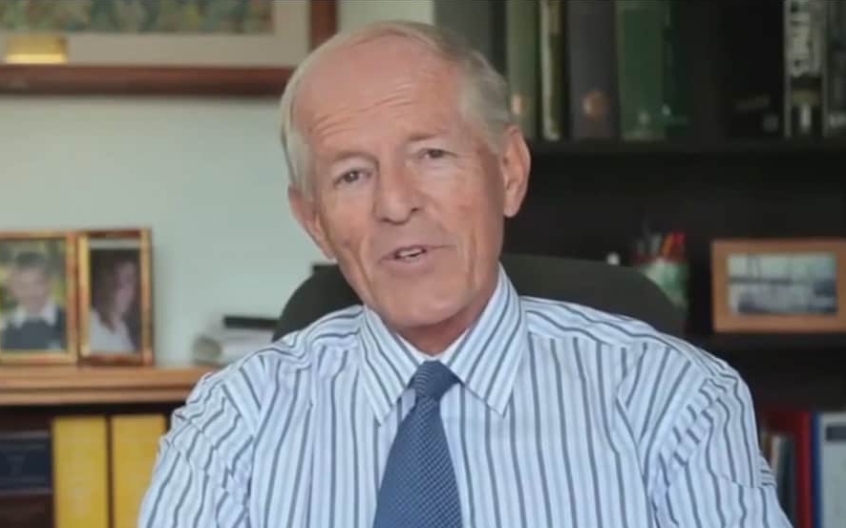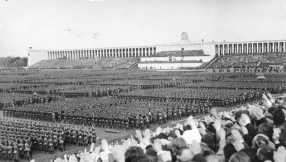
I have a confession to make. I was not abused. This may come as a shock to those who think that being brought up in a Christian home, attending Sunday school and being sent on Christian summer camps made me a prime target. Despite the fact that as a child, teenager and adult I have attended many Christian summer camp with Scripture Union, the Free Church, Highlands and Islands Postal Sunday School and the Boys Brigade, I never came across any such abuse, nor have I ever heard of any.
This may be surprising to those whose knowledge of such camps is limited to such as some that appeared this weekend. For once the sensationalist headlines did justice to the sickening story contained in the body of the report and in the investigative reports that have been broadcast by Channel 4 News.
John Smyth has been accused of sadistically beating boys. Smyth was a leader of what were called the "Bash" camps run by the Iwerne trust. There is no suggestion the abuse took place at the camps themselves.
The details of the story are horrendous.But it gets worse, as Ruth Gledhill explains in this most helpful article on Christian Today. The Bishop of Buckingham, Alan Wilson, has made some extraordinary allegations. To him this is not about one man physically abusing a number of boys under his care. This is about a whole theology – the kind of evangelical theology espoused by EJ Nash, who set up the Bash camps, and taught by people like John Stott, Dick Lucas and others who were influenced by them. According to the bishop, "These camps had extraordinary influence. The theology that these people bring to the table very often has an element of violence and nastiness in it."
Richard Dawkins must be thanking his lucky stars for such a bishop. Dawkins in The God Delusion pointed out that he was a victim of child sexual abuse in his English boarding school from a teacher "whose affection for small boys overstepped the bounds of propriety", which he then went on to describe as "an embarrassing but otherwise harmless experience". Dawkins then went further and suggested that teaching children the truth of the Bible was sometimes worse than child sexual abuse – "horrible as sexual abuse no doubt was, the damage was arguably less than the long term psychological damage inflicted by bringing up the child Catholic in the first place".
While I expect the more extreme atheist secularists to take this kind of line (and to be fair many secularists would not make that kind of clumsy connection), it is more than a little disappointing that a professing Christian leader should use this tragic case to further a particular theological/political agenda within the church. It is as reprehensible as those who would use the fact that some Catholic priests have been found guilty of child sexual abuse, as a reason for denouncing Catholicism per se.
One of the victims expressed it well when he tweeted:
Bishop Alan Wilson treating us victims like a theological test case at seminary not people. Epic fail @cathynewman@Channel4News#livid
— Mark Stibbe (@markstibbe) February 3, 2017
But you might say, "Don't be so defensive. Back off a bit and consider whether there is any truth in the allegation." Well, I have. Many times. Because it is an accusation that is constantly made. And the obvious conclusion to any fair-minded thinking person who knows what they are talking about is that this particular incident has nothing to do with evangelical theology. Why? Because culture, experience and most of all the theology itself give us a much more credible explanation.
Culture
These offences took place in an era when corporal punishment and 'fagging' were very much the common practice at the private schools from which the Bash camps drew their clients and staff. Fagging was the practice of younger boys serving older boys as servants – in some cases it involved harsh discipline, corporal punishment and sometimes sexual abuse. I would suggest that the alleged abuse is far more likely to have come out of that culture, than out of any evangelical theology.
Experience
In that same era I remember getting the belt at school several times, I remember being kicked by a teacher, but I was never touched or in any way physically punished at any of the Christian camps I went to. There was a strong discipline but that was never enforced by violence or threats of violence. Maybe the culture in the North of Scotland was different from that of the English public school culture. And here's the thing. Every one of these camps taught openly and explicitly about the atoning death of Christ on the cross, and Christ coming to save us from hell.
For some of those camps I was not a believer. I liked going because of the sport, the games, the outings and to be honest the fact that they were a safe and secure environment to have a good time, without being bullied and without being expected to take part in dodgy activities. At one camp when we were asked to write a short essay on the Bbible, I wrote one explaining why it was rubbish. Rather than get a telling off, I was awarded second prize – admittedly to my disappointment it was a small King James Bible! But I have kept that Bible because of the kindness and generous spirit of the 80-year-old man who gave it to me. He did not dismiss me, or threaten me; instead he took time to listen and to answer my somewhat arrogant and dismissive questions. I would suggest that that man is far more indicative of those who volunteer on Christian camps than John Smyth.
Of course I am not arguing that such abuse does not occur. Nor that those of us in church leadership should not take special care and ensure that there is proper child protection. The fact is that church is one of the few places where adults and children come together in public and with the increase of paedophilia, sexual immorality and the horrors allowed by the internet distorting souls and minds, we need to be on our guard. It is the fact that the church is open to all that makes us targets to some. We need to fulfil our responsibility to watch over the lambs of the flock.
Theology
But that is a world away from saying that this kind of child abuse is caused by evangelical theology. Ironically it is evangelical theology that argues most strongly against child abuse of any kind. We believe that God is the judge. We believe that we have to answer for every careless word spoken and harmful deed done. We believe that God is all-seeing – sins done in secret may escape the law courts of this world, but they won't escape the judgment court of heaven. We believe the Bible and we believe in the Jesus of the Bible, who taught: "If anyone causes one of these little ones – those who believe in me – to stumble, it would be better for them to have a large millstone hung around their neck and to be drowned in the depths of the sea" (Matthew 18).
Yes, it is possible that those who believe these things can stumble and fall – because after all we also believe that we are sinners, which is why we need to avoid self-righteousness and ensure that we have a collective responsibility and proper checks and balances. But at the end of the day, any professing Christian who abuses children is doing so, not because they follow biblical theology, but because they are going against it. And someone who really ought to know has said exactly this only today: the Bishop of Guildford, Andrew Watson, has revealed he was one of those abused by Smyth. In a statement, Watson says he would "like to express the concern of myself and some of my fellow survivors that we are seen as people and not used as pawns in some political or religious game. Abusers espouse all theologies and none; and absolutely nothing that happened in the Smyth shed was the natural fruit of any Christian theology that I've come across before or since. It was abuse perpetrated by a misguided, manipulative and dangerous man, tragically playing on the longing of his young victims to live godly lives."
As for the violent God? Even when I was a child/teenager attending these camps I was politically and socially aware enough to know that we lived in a violent world. I could see no way for that to end – until I came to understand that the violence of the cross negates and destroys the violence of the world. I came to see that the death of death in the death of Christ was the only real hope for peace.
Ironically the Bishop of Buckingham, in his attempt to niceify God, takes away the heart of the Gospel, the Gospel that ultimately prevents the abuse of all human beings. We need more evangelical theology and more evangelical practice, not less.
Rev David Robertson is minister of St Peters, Dundee and director of the Solas Centre for Public Christianity. He is on Twitter @TheWeeFlea.













